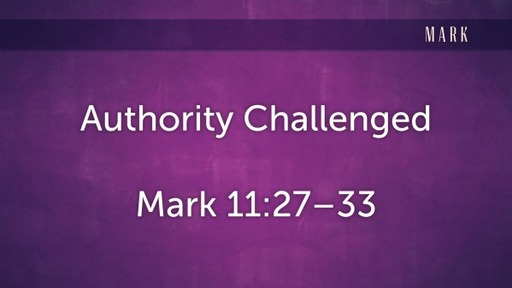Authority Challanged

Intro
What brought you to Jesus?
What motivates your questions?
Spanish runner Iván Fernández Anaya was running in second place in the 3,000-meter steeplechase at the 2012 London Olympics. As the runners came toward the finish, he was trailing the leader, Abel Mutai from Kenya, by a distance too great to overcome. Mutai would get the gold and Anaya would settle for silver.
Then Mutai made a big mistake. Thinking he had crossed the finish line, the Kenyan pulled up 10 meters short. Anaya quickly caught up and that is when his integrity kicked in. Instead of exploiting Mutai’s mistake by passing him and claiming victory, he stayed behind, using gestures to guide Mutai to the finish so he could cross first.
“He was the rightful winner,” Fernández Anaya said. “He created a gap that I couldn’t have closed if he hadn’t made a mistake. As soon as I saw he was stopping, I knew I wasn’t going to pass him.”
It is better to be proud of a silver medal honestly attained than wear a gold medal that rightfully belonged to another.
—Jim L. Wilson and Rodger Russell